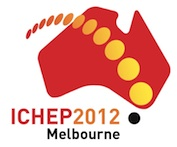Speaker
Dr
Adam Para
(Fermi National Accelerator Laboratory (US))
Description
We review the physics foundations of hadron calorimetry with the help of detailed simulation based on GEANT5. Detailed studies of spatial and temporal development of hadronic showers are presented and the contributions of various particles species to the observed signals are evaluated.
We identify the principal contributions to the energy resolutions and demonstrate the importance of the total absorption and calorimetry in attaining high energy resolution. Furthermore we demonstrate that the additional information provided by Cherenkov light in addition to the scintillation light makes it possible to correct, on the event-by-event basis, for the loss of the energy for particles production and nuclear binding energy and to attain the energy resolution of the order of 10%/sqrt(E).
We present the performance of a dual readout total absorption calorimeter for single particles of different kinds and energies as well as for the jets.
We discuss the practical implementation of a calorimeter in a colliding beam experiment. Leakage of energy due to the finite thickness of the calorimeter is likely to be the dominant contribution to the energy resolution and we discuss possible ways to mitigate this contribution.
We present a program of a studies of various systematic effects potentially relevant to the energy resolution, like the non-linearity of response of inorganic scintillators to heavily ionizing particles.
Author
Dr
Adam Para
(Fermi National Accelerator Laboratory (US))
Co-author
Dr
Hans Wenzel
(Fermilab)
